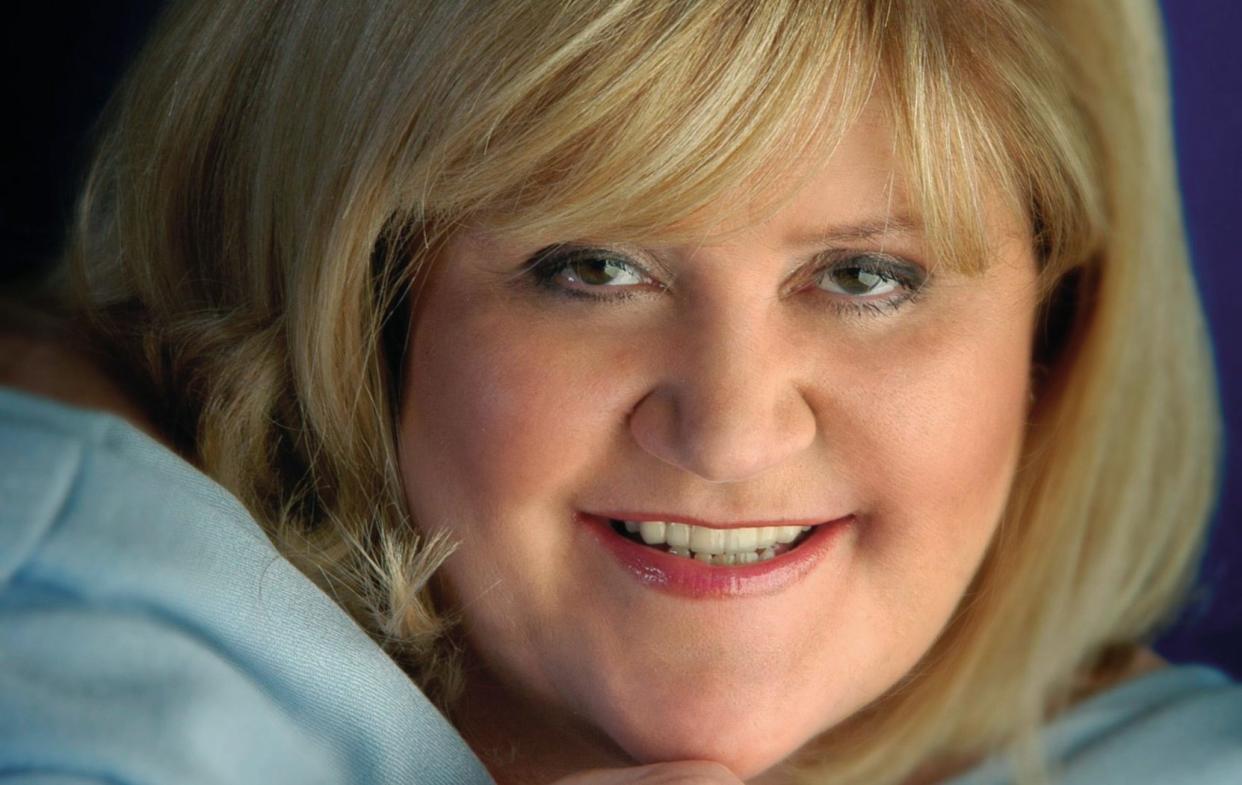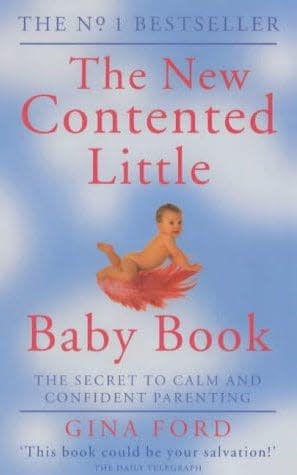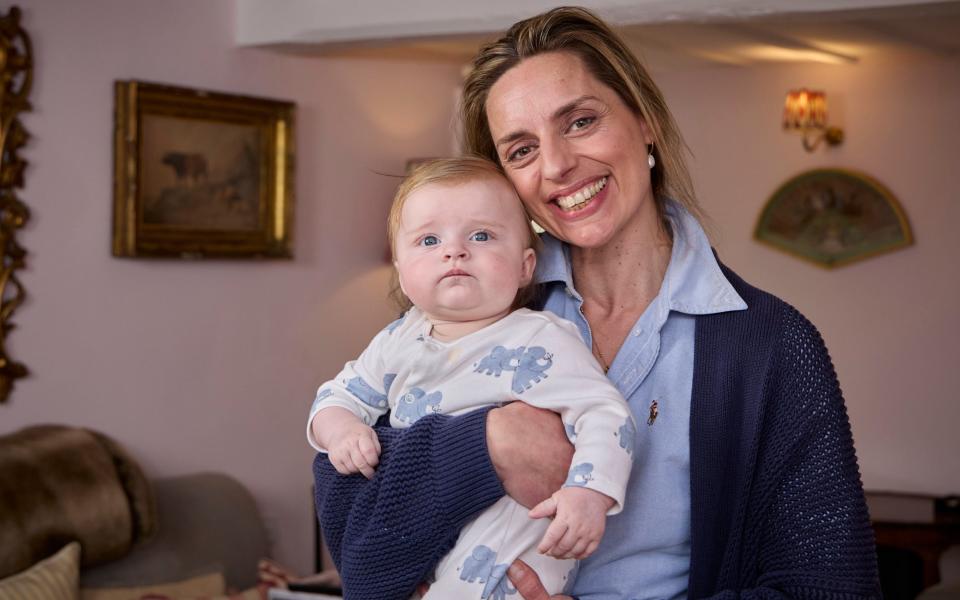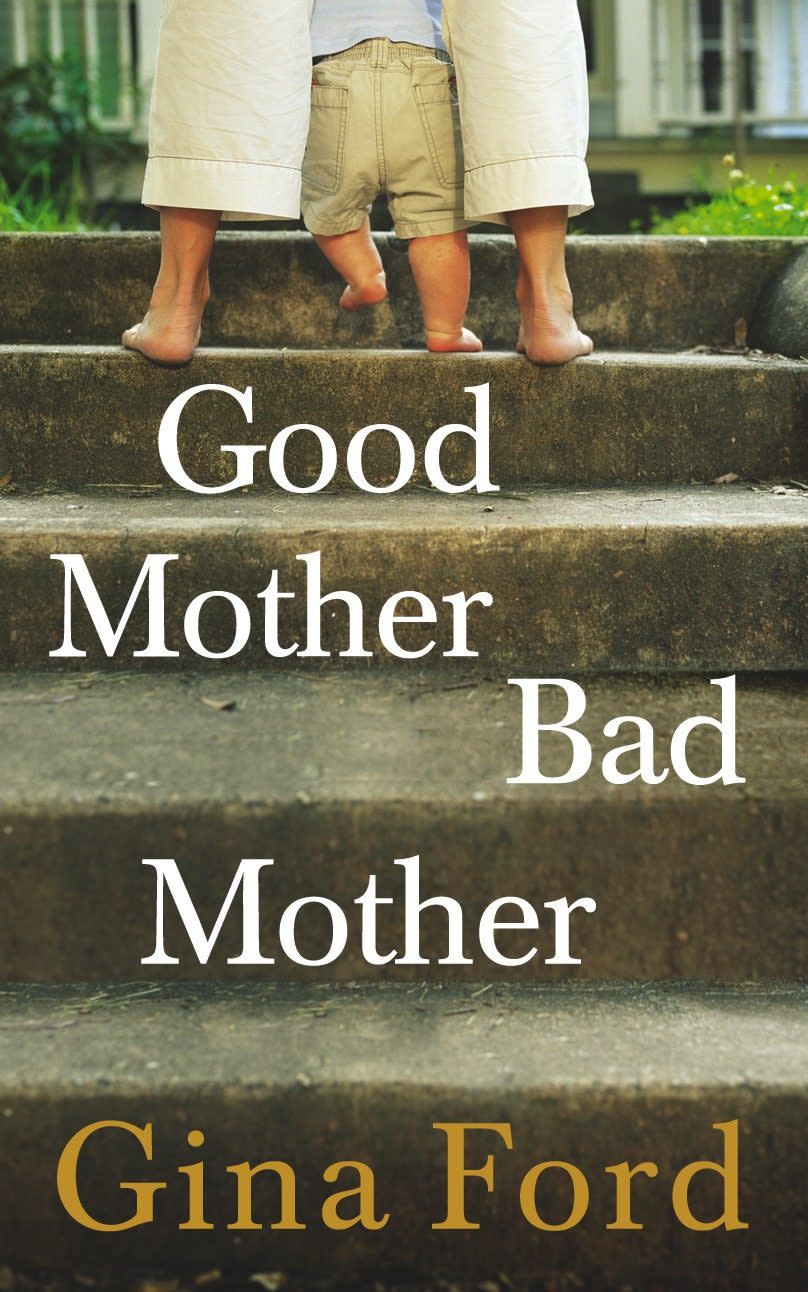After 17 years of silence, Gina Ford on the truth behind her controversial ‘controlled crying’

Three weeks ago, I wrote an article for The Telegraph about my search for Gina Ford, the baby sleep guru and Queen of Routine. Desperate for my own baby to sleep, I described my fruitless attempts to impose Ford’s methods – in the middle of the night, as the baby monitor flashed red, or at lunchtimes when she woke up 40 minutes after I’d put her down for a nap – and my fantasy that Ford herself might offer me some advice.
In my wild imaginings, I had envisaged flying to her apocryphal home in Switzerland and presenting her with my six-month-old daughter, Constance, whereupon the baby would fall into a deep sleep while I interviewed her. Instead, Ford appeared to me in the Telegraph reader comments section of the article I had written about her divisive parenting style.
A comment leapt out purporting to be from Gina Ford herself: “Given that I receive many requests on a regular basis from many different journalists, l find it rather strange that Arabella Byrne says she has been unable to contact me. But, there again, it makes for a much more amusing, contentious article to refer to me as Howard Hughes!”
In my kitchen, frantic discussion ensued. Could it really be her? Surely not, thought my sister, while my husband couldn’t decide. Then my editor called to say she had received an email from an address whose server she could not recognise from a woman called Jane. Was Jane in fact Gina or was Gina actually Jane? Would Gina Ford, who hadn’t spoken to the press for 17 years, really agree to speak?
In true Gina Ford style, rules were laid down and exact times stipulated: a call from her landline – not Zoom – at 2pm for 30 minutes followed by a break of 30 minutes followed by a further 15 minutes. Once she started, it turned out she had a lot to say. What has prompted her to speak now, after all these years? I asked hesitantly.
“The one reason I’m doing this interview is because it’s a special year,” she said in a lilting Scottish brogue. “It being 25 years of The Contented Little Baby Book. I just want to say thank you to all those parents who have faith in me and who have supported me on this roller-coaster.”
Plenty of parents do have faith in her, millions even, if her best-selling franchise of books on sleep training, potty training, toddler behaviour and weaning (translated into seven languages) is anything to go by. While it is hard to pin down the exact sales figures for her books – and even harder to approximate her wealth – in 2007, Ford said that three of her books corner 25 per cent of the childcare market share. Her publisher, Penguin Random House, states that The New Contented Little Baby Book has sold “over one million copies around the world”.
Unlike her modern-day successors in the childcare industry, such as Nanny Louenna, Ford will not endorse anything: “You won’t find a Gina Ford-endorsed product. I did endorse something years ago but the backlash from [the website] Mumsnet was horrendous. Although there are products I would like to endorse, I don’t.”
Singular in style, The New Contented Little Baby Book reads more like a strategy for war than a book about babies. Parents are told to keep to a rigid routine from the moment the baby is born, with feeds at strict four-hourly intervals and nap times set in stone and observed to the second. Do this, Ford says, and very soon your contented little baby will sleep for 12 hours at night and for 2.5 hours in the middle of the day with no crying or resistance whatsoever.
When pressed on its style, Ford discloses that the book was written with the help of a father, one of her clients. As such, it was stripped of the “fluffiness” to which it could have become prey. “I find that men want the facts, they don’t want to read, ‘Oh, you poor thing, I feel so sorry for you.’”
Fact-finding fathers who want to help with the baby, Ford contends, are far more helpful than they ever used to be, and represent the biggest change she has seen in the parenting landscape: “Twenty to 25 years ago, men didn’t change a nappy.” But it is the fathers who are “keener for the routine” than the mothers, she says of her 40 years in advising parents as a maternity nurse and then a sleep consultant.

“The advice given to mothers in recent years has become very vague,” she says. “In the past, health visitors would have given you detailed advice.” Now, she contends, the trend is far more baby-led. “They tell you to rock your baby to sleep … They don’t tell you that you could face hell in seven months’ time when your baby can’t get to sleep without being rocked or given a dummy.”
This is a “political problem”, she states: “The more vague the advice is, the less responsibility the NHS has to take for helping parents.”
Doesn’t every parent – mother or father – just want their baby to sleep through the night from a young age, I ask. “All my babies slept through,” she replies, referring to the babies she has looked after through her work (Ford herself has never had children).
“People say it’s natural for babies to be up three times a night at six months and that’s just not true. It’s the mechanism of feeding and sleeping that people struggle to understand.”
Regarding interruption, I ask why she has maintained such a low public profile over the past 17 years. Was it the Mumsnet lawsuit (Ford sued the website for defamatory comments in 2006 – most memorably that Ford “strapped babies to rockets and sent them into south Lebanon” – with the case being settled out of court in May 2007), or untruths written by journalists, or even Nick Clegg’s comments that hit the headlines in 2010 after he likened her methods to “sticking babies in broom cupboards”?
Or perhaps it was the attacks from Penelope Leach, the fellow childcare expert, who that same year claimed that leaving a baby to cry could cause lasting damage to the developing brain.
Ford is unfazed by her critics. Of the Mumsnet lawsuit, she is resolute in her stance. It wasn’t the criticism of her routines she couldn’t bear but the attacks on her and her family. “I grew up in a small town and people were horrified by what they were reading on that website because there were so many lies. My father was actually dying at the time,” she says.
It’s not been helped by the media, who have repeatedly dogged Ford, levelling her childlessness against her. The accusation persists, she says, because journalists keep writing about it. “If I’d had children, there’s no way I could have devoted 16 hours a day for 40 years to my career,” she retorts. “That’s like saying someone who does heart surgery can only perform surgery if they’ve had a heart attack themselves.”
The Contented Little Baby Book was a sensation when it was first published in 1999. After years of the attachment parenting doctrine, here was an expert who believed that infant sleep could be routined and parents’ lives made bearable. When I tell her that many women I speak to say she has saved their lives, she laughs: “It’s an exaggeration that I have saved people’s lives, but I like to think I have helped them.”
Journalists print lies and write rubbish, she says; “I got fed up.” Not for the first time, I wonder why she is speaking to me. The fact that I don’t know where she is speaking to me from only accentuates the feeling that I am talking to a sacred, mysterious figure. She is also invisible, refusing to be photographed for the interview or to release any more recent images of herself than the stock picture of her smiling knowingly into the camera, blonde hair coiffed, presumably taken more than 20 years ago.
Now 70 and recovering in the aftermath of Covid (“my beloved dog died within three months of me having Covid”), Ford lives in Edinburgh, not far from where she grew up. Does she still advise millions of desperate mothers like me? “Do you know how old I am?” she laughs. “Is Gina Ford not allowed to retire?”
Of her website, ginaford.com, she says she is still at the helm but no longer involved in its inner workings owing to her ongoing ill health post Covid. Gone are the 16-hour days and her famous insomnia that allowed her to work at such an impressive rate. Instead, she now passes queries on to trusted sleep consultants (not employed by her) who continue her teachings. “If it’s a really severe problem with feeding and sleeping then I will consult,” she adds, but her full-time work is over.
Perusing the rather clunky website before our call, I struggle to see how it fits into today’s landscape of “digital parenting”, where parents use apps to tell them how to get their babies to sleep through.
Naturally, Ford has anticipated this. “I’m actually developing an app that goes much further, giving people on-the-spot advice,” she tells me, adding that it will be far superior to what is out there. “The apps are OK but that’s going to be of no use if you don’t understand what your baby needs. The technology fails parents.”

Her app, which will be launched in August, will advise mothers via push notifications every hour to two hours in the day, something current apps don’t address. “If the baby hasn’t slept well at lunchtime, then the app will redirect them to the relevant information to get the day back on track.”
In her 2006 memoir Good Mother, Bad Mother, Ford argued that the struggles of modern parents were, in part, down to the dramatic way in which society had changed. Instead of bringing up babies in a tight-knit community like the one Ford was born into, where her mother raised her alongside her “Granda”, Aunt Jean and her cousins, new mothers leave hospital (often 24 hours after a traumatic birth) with little to no assistance and with no support around them to speak of.
Today, “community” has been outsourced to her nemesis, Mumsnet, where mothers scroll through threads looking for answers in the middle of the night as their baby screams. “There is so much conflicting advice, it just makes it even more difficult for mothers,” she says.
But what Ford is particularly alarmed by is the parlous state of government provision for working mothers. The childcare crisis is “dreadful”, she says, and its associated costs are “astronomical”.
We’ve forgotten about our mutual responsibility to raise the next generation of children. “Over the years, I’ve paid my taxes, I didn’t take much back from the state, I had no children,” she says. “But whether we have children or not, we have a responsibility to make sure children are brought up in the best possible society, and I don’t think that’s happening.”
On the topic of the state, I ask her what she thinks of a new government initiative to encourage more “cuddly parenting” by ploughing £300m into 400 hubs across the country and online as part of a corrective against the “tough love” child-rearing philosophy.
“I don’t think you can cuddle a child too much, not before bedtime, though.” Cuddle them, yes, but don’t show children empathy at all times. “I thought it was a bit weird to say that parents should empathise with their children at all times – it’s not fair to place that burden on children.”
Gina Ford grew up in the Scottish Borders, the only child of her mother, Helen, a waitress, and her father, a pitman who left when she was only a few months old. As a single mother, Helen reportedly struggled with depression and financial problems. Gina, old for her years, would reputedly cook for her mother and share her bed, a fact to which she attributes her chronic insomnia.

Having been part of a band of two, Ford has detailed their extraordinarily close relationship, describing Helen as “the best mother anyone could have asked for” and, as she lay dying, as “the baby she never had”.
On leaving school at 16, Ford moved to Edinburgh to study hospitality and catering before becoming a maternity nurse, travelling the world and assisting high-profile families with their newborn babies. Famously tight-lipped on her training, Ford has said that her routines “arose from observations of contented babies and what they would do naturally as well as what would help the mother”.
Now divorced, Ford met her husband when she was 16 and he was 18, marrying three years later. On the subject of her marriage, Ford has said that her “husband was my best friend for a decade but when he left the scene, there was really only one person I could turn to … The lines between mother and best friend were blurred.”
In 1998, Helen Ford died of cancer, urging her daughter to write her first book, prompting a change of career that would kick-start the Gina Ford method.
Of Ford’s sharp intelligence, I am in no doubt. Of her private life, I am in a great deal of doubt. Is her life all celebrity chit-chat and Swiss penthouses? Not a bit of it. “I have a group of loyal friends from my youth that I grew up with and they say I haven’t changed at all,” she says proudly.
Divorced from her husband for 30 years, Ford tells me that she enjoys having people to stay and hosting dinner parties with the help of her PA, who doubles as an excellent cook to cater to her vegetarian palate.
And what of the celebrity Gina acolytes such as Kate Winslet and Heather Mills who have endorsed her books? “I won’t name names,” she says, adding that the celebrity world has always courted her presence without success: “I’m extremely proud that my books became successful through word of mouth, not because celebrities endorsed me.”

Would there be room in her life for another Mr Gina? “I’m open to offers!” she says jauntily. Of her former husband, Ford will reveal only that her work in childcare prevented her from meeting someone else. I can see that she has a point.
When I mention the speculation of her extreme wealth, she demurs. Her life has changed immeasurably since contracting Covid, she says. Where she once travelled the world, she is now happy to stay in her flat in Edinburgh (the Swiss half-life was well over 30 years ago, she says).
A recluse she certainly is not. Of that particular epithet, she laughs: “It was probably made up by some journalist who was annoyed I wouldn’t give him an interview.”
Glancing at the clock, I realise that we have spoken for almost an hour with no break. I have so much more I want to ask her. I settle on the much-debated crying issue. “I’ve never advised parents to let their babies cry it out,” she says. “If anyone is following my books correctly there should not be a lot of crying.”
How misrepresented she must feel, I think, casting my mind’s eye back to Mumsnet, where she is described as a torturer for letting babies scream into the darkness. “I’ve always said controlled crying is a last resort,” she says firmly, “and should only be done when you have looked at all other areas.”
Having let both my daughters cry it out to achieve her routines, I feel confused, let down, even. Was I not reading the books properly? There is no strict four-hourly feeding routine in any of her books, she continues, describing it as “frustrating” that people have become obsessed with untruths. “In the very first book and in subsequent books I have always said that one must always assume that the baby cries because of hunger.” If it has been fed properly, then it will sleep properly.
Somewhere along the way, we have misunderstood entirely. But does it even matter? Is Ford simply a proxy for our desire to reclaim a part of ourselves that we lose when we become parents?
As we close, I ask her whether there is a stereotypical “Gina” mother and whether that woman is a middle-class mother reading her book in a side return kitchen in Wandsworth sipping tea from an Emma Bridgewater mug. Professional working women probably need to routine their babies to be able to work, I suggest meekly.
Ford admits that a lot of middle-class professional women buy her books, but, in her characteristic dour Scots fashion, bats away my questions of class. For her, it is quite simple: feeding and sleeping, sleeping and feeding. The vast morass of cultural overlay is entirely of our own making. “I laugh when people say my routines have made a comeback,” she says, “They never went away.”
I end the conversation and call off the search. Gina’s there, all right, hiding in plain sight.
Recommended
What you really need to know when you've just had a baby
